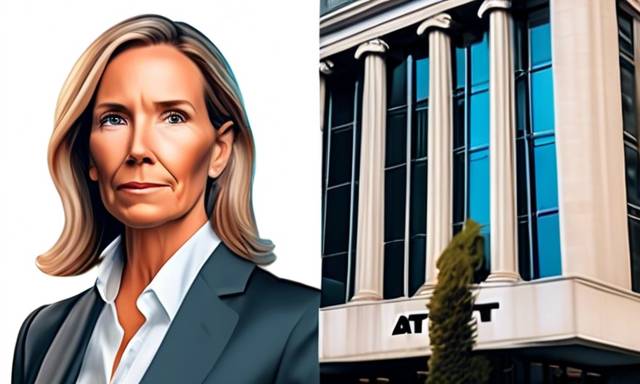What Does the AT&T Case Mean for the Cryptocurrency Market?
In the ever-evolving world of cryptocurrency, incidents like the AT&T case bring both alarm and awareness to the forefront. The legal proceedings echo issues of security, personal responsibility, and corporate accountability in a space that thrives on decentralization but is often marred by centralized vulnerabilities. So, how does this affect the crypto market? Spoiler alert: It can have far-reaching consequences.
Key Takeaways
- High-profile Legal Battles: The case showcases the potential for significant financial loss and legal repercussions within the crypto space.
- Security Risks: It highlights ongoing vulnerabilities, particularly related to SIM swapping and other cyber-attacks.
- Investor Awareness: It serves as a wake-up call for investors about the importance of security and due diligence.
- Regulatory Implications: Legal outcomes could influence future regulations and how crypto-related crimes are prosecuted.
Now, let’s dive in a bit deeper. Back in 2018, a scheme unravelled involving a young hacker duo who managed to orchestrate a SIM swap, allowing them to steal a jaw-dropping $24 million in cryptocurrencies from a prominent investor, Michael Terpin. This incident wasn’t just your average heist; it was a blatant demonstration of how vulnerabilities within even major corporations like AT&T can have explosive effects on investors.
The Mechanics of the Case
Imagine having your life savings – in this case, $24 million worth of cryptocurrencies – stolen right from under your nose because a telecom company didn’t secure your account properly. The whole debacle began with Pinsky, a 15-year-old hacker, and Truglia, a 21-year-old accomplice, who bribed an AT&T employee to facilitate this SIM swap. This successful hack allowed them to bypass Terpin’s two-factor authentication, an important layer of security that should make digital access difficult.
- Bribery and Betrayal: It’s disheartening—an employee of a large corporation, entrusted with safeguarding information, turned rogue.
- The Aftermath: Terpin, determined to reclaim his lost assets, didn’t just fold; he went after not just the criminals but also AT&T. His determination led to legal assessments that highlighted a blend of accountability from both the telecom and the cybercriminals involved.
Aftershocks on the Market
But what does this mean for investors like you? Well, let’s think this through:
-
Increased Vigilance: If you’re investing in crypto, this case exemplifies the need for heightened awareness about security. Make sure to use reliable wallets, enable two-factor authentication, and be skeptical of your mobile service provider’s security measures.
-
Understanding the Risks: Everyone’s buzzing about cryptocurrency’s potential for growth, but the risks are equally tantalizing. Observing high-profile cases like this one can be beneficial, providing real-life examples of what happens when precautions aren’t taken.
- Legal Precedents: With ongoing appeals and discussions about liabilities, the outcome could set crucial legal standards within the cryptocurrency sphere. How a court perceives responsibility in such scenarios could greatly influence future investors’ sense of security.
The Road Ahead
Now, while Terpin initially sought a staggering $216 million from AT&T, the court has mulled those figures down to a simpler $45 million. As this case unfolds, we could see a ripple effect across the industry, prompting more robust security measures across platforms and possibly leading to regimens demanding stricter corporate responsibility in safeguarding user data.
Personal Insights and Practical Tips
From my perspective, here are a few practical tips that might help mitigate risks:
-
Consider Security First: When you’re choosing a platform to store or trade cryptocurrency, always evaluate their security protocols first. If they don’t prioritize security, it might be best to steer clear.
-
Diversify Storage Options: Look into hardware wallets versus keeping all your assets on exchange platforms. Your digital currency deserves the same level of security as your physical savings.
-
Stay Informed: Keep tabs on legal cases and cyber threats in the crypto world. Knowledge is power, and the more you know, the better you can protect yourself.
- Practice Scepticism: Trust but verify. Always confirm the identity of folks requesting sensitive information, especially if it’s over the phone. You’d be surprised how easily they can impersonate someone trustworthy.
Concluding Thoughts
In sum, the AT&T case might seem like just another legal proceeding, but its implications stretch beyond the confines of the courtroom. It’s a reminder that as we navigate this thrilling, sometimes treacherous landscape of cryptocurrency, our collective responsibility includes protecting our investments against the ever-present threat of cybercrime.
Have you considered how secure your crypto assets really are? In this digital age, being proactive about security isn’t just smart; it might just save you from becoming the next headline in a story about a multi-million dollar heist.





 By
By
 By
By

 By
By
 By
By
 By
By